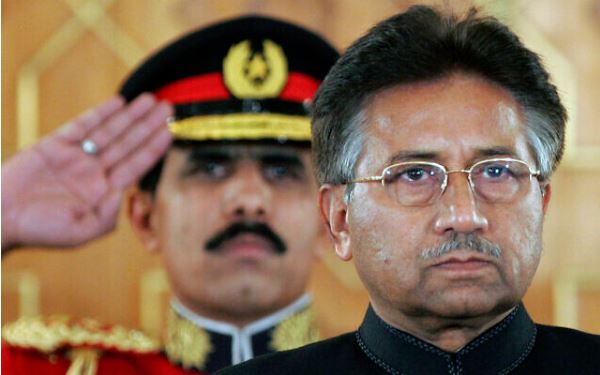From Bloodless Coup to Self-Exile: World Media on Musharraf
News Desk
Islamabad: American print and electronic media paid tributes to former Pakistan President Pervez Musharraf, who passed away in Dubai Sunday, as a U.S. ally in the campaign against al-Qaeda, but noted that he faced “growing resistance at home in a land seething with anti-Western passions.”
As the news of his death came on a weekend local legacy and non-legacy media headlined the story, and highlighted his role in combating terrorism. However, there is so far no statement from the State Department, but newspapers and television channels headlined the story, and highlighted his role in combating terrorism.
From Bloodless Coup to Self-Exile
“From the moment he took power in a bloodless coup in late 1999 to his resignation and self-exile under threat of impeachment in 2008, Musharraf offered the world the swashbuckling image of a former army commando and ally of the United States who guaranteed a measure of regional stability in the upheaval after 9/11 and the subsequent United States attack on Afghanistan,” The New York Times stated in a detailed front page story on Monday.
The Times further said, “Washington’s demands for firm action against Islamist militancy collided with competing pressures from Pakistani Muslims who were resentful of Musharraf’s close ties to Washington.”
The same viewpoint was underscored by the Washington Post, another leading newspaper, which said, “The September 11attacks and the US-led invasion of Afghanistan forced Gen. Musharraf to choose between Pakistan’s alliance with the Afghan Taliban and Washington’s demand for cooperation in the war on terrorism. His decision to side with the West was unpopular at home and helped fuel violent Islamist groups that have terrorized Pakistan ever since.”
“Musharraf oversaw rapid economic growth and attempted to usher in socially liberal values in the conservative Muslim country. He allied with the U.S. and “promoted moderate Islam”, stated the Reuters.
“Musharraf also set out to find a peaceful solution to the Kashmir dispute. He met several times with Indian leaders and agreed with them on measures to reduce tensions,” remarked the Times. The Washington Post also pointed out that his coup was denounced abroad but welcomed in Pakistan.

Admirer of Mustafa Kemal
Former dictator Gen (retd) Musharraf was a career army officer who served in the Special Services Group and had several assignments. He abhorred the elitism of civilian politics which he called fake democracy. In addition, he was a moderate Muslim, the son of a well-educated diplomat, and a supporter of Mustafa Kemal Ataturk, the army officer who founded modern Turkey.
Pledged to Depoliticize Institutions
When he took over, Gen. Musharraf unveiled a comprehensive reform agenda. He vowed to make government more accountable, depoliticize state institutions, address social problems, resuscitate the economy, and stop Islamic radicals from using religion as a political football.
Even though he was able to bring together disparate groups like the PMLQ and PPP dissidents, as well as the MQM and the MMA of JUI-F, he was only partially successful in the designation of a self-serving political idol. Regarding his political actions, Musharraf was a divisive figure. The Kargil misadventure also brought to a peak the tension between the civilian and military leadership, which according to many accounts resulted in Nawaz Sharif’s decision to sack him while he was returning from Sri Lanka.
This led to a military coup and the all-powerful military overthrowing a different elected administration. His worst error was acting against the Pakistani Chief Justice at the time, which sparked a wave of protests that eventually resulted in his gradual removal from the Presidency.

Comments are closed.